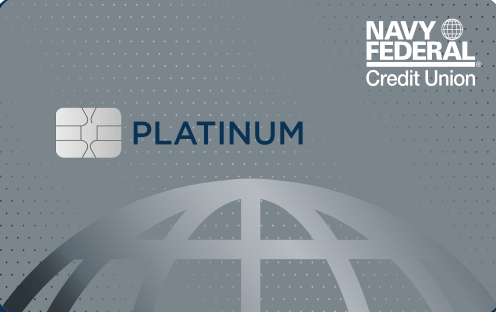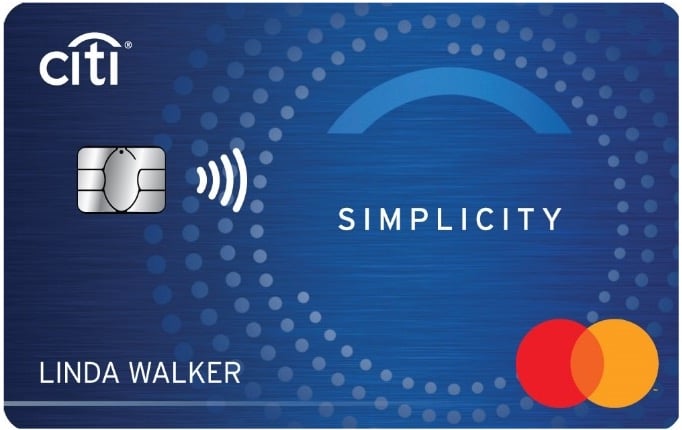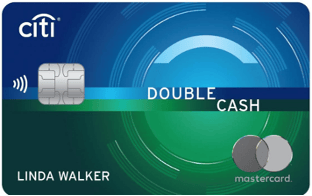Best No Balance Transfer Fee Credit Cards
Credit cards that charge no balance transfer fee are out there, but options are limited. In many cases, the fee can be worth paying if it saves you money in the long run.

Many or all of the products on this page are from partners who compensate us when you click to or take an action on their website, but this does not influence our evaluations or ratings. Our opinions are our own.
A balance transfer credit card can save you money by moving debt from a high-interest card to a new card with a lower promotional interest rate — ideally 0% for a year or more — so you can pay off that debt more easily. The transaction isn't without a cost, though. Most cards charge a balance transfer fee, typically 3% to 5% of the amount transferred. Put another way, every $1,000 in debt you transfer could cost you $30 to $50.
When you’re paying down debt, every cent counts. So the ideal balance transfer credit card would have a $0 balance transfer fee, as well as a $0 annual fee and a long 0% intro APR period. At one point in the late 2010s, such "triple-zero" cards weren't too difficult to find, and several major issuers made such offers available, including Chase, Bank of America® and American Express.
But times have changed. Today, no major credit card issuer has an option with both a $0 transfer fee and a 0% APR period. If you're hoping to transfer debt without paying a fee, you'll have to look to a smaller bank or a credit union — and even then, your options are sharply limited.
Below, we've identified a handful of cards that don't charge a balance transfer fee. If you can't find one that's a feasible option for you, consider a regular balance transfer card that does have a fee. You can still save hundreds or even thousands of dollars in interest. Farther down the page, we've collected some good options with a fee (jump ahead to those).
Credit cards with no balance transfer fees
Frankly, the number of cards that offer balance transfers without a balance transfer fee has always been small, and it's even smaller now. The number that are available nationwide is even smaller still. These cards tend to come from credit unions, which require membership, or regional banks that don’t operate in every state.
For example, the ESL Visa Credit Card from ESL Federal Credit Union has no balance transfer fee, charges no annual fee and has a 0% APR on transfers for 12 months. But to qualify for the card, you must be a member of the credit union — and membership is limited to residents in 10 counties around Rochester, New York. Similarly, the TDECU Platinum Mastercard has a $0 annual fee, a $0 transfer fee and a yearlong 0% period — but you have to live in Texas to get it.
Here are some options that may be available beyond a small regional footprint, although restrictions may still apply.
Navy Federal Credit Union® Platinum Credit Card
The offer: The Navy Federal Credit Union® Platinum Credit Card has no balance transfer fee and charges 0.99% intro APR for 12 months from account opening on balance transfers made within the first 60 days, and then the ongoing APR of 10.99%-18.00%, Variable APR, as of September 2025. This offer applies to transfers in the first 60 days of account opening. At the time of this writing, similar offers were available on two of the issuer's other cards:
The fine print: You must be eligible for Navy Federal Credit Union membership, which is generally open to military members and veterans, Department of Defense civilian personnel, and the families of such people.
Affinity Federal Credit Union Visa Premier Select Rewards Visa
The offer: This card from Minnesota-based Affinity Federal Credit Union offers an introductory APR of 2.9% for 12 months on balance transfers made within the first 90 days of opening the card, as well as on purchases. The ongoing APR as of September 2025 was 15.4% to 18% (variable), depending on your creditworthiness. This card also earns rewards and offers a sign-up bonus.
The fine print: To get the card, you must be a member of the credit union. Membership is open to people with ties to certain Minnesota communities, schools, employers and organizations. But anyone can join by becoming a member of Affinity Plus Foundation with a one-time $25 payment.
FourLeaf Federal Credit Union cards
The offer: FourLeaf — formerly known as Bethpage Federal Credit Union — offers the Cash Back and Rewards-Points cards. Both charge no balance transfer fee and offer an introductory APR of 2.99% to 4.99% (based on your creditworthiness) for 12 months on purchases and balance transfers. After the intro period, the ongoing APR as of September 2025 was 15.4% to 18% (variable), depending on your creditworthiness and which card you get.
The fine print: You must be a member of FourLeaf Federal Credit Union, although anyone can join by opening a savings account with at least $5.
Skyla Credit Union Visa Platinum
The offer: The Visa Platinum card from Skyla Credit Union doesn't charge balance transfer fees or annual fees. It offers an introductory 0% APR for 12 months on balance transfers (but not on purchases). As of September 2025, the ongoing APR was 11.9% (variable).
The fine print: You must be a member of Skyla Credit Union to be eligible for the card. You can qualify based on where you live — the credit union has locations in the Carolinas and California — or where you work. You can also join by becoming a member of a partner association, the American Consumer Council.
BECU Low Rate Credit Card
The offer: The BECU Low Rate card has a $0 annual fee, a $0 transfer fee and an introductory 0% APR for 12 months on purchases and balance transfers. As of September 2025, the ongoing APR was 13.24% to 24.24% (variable).
The fine print: BECU stands for Boeing Employees' Credit Union, so membership is obviously open to employees and retirees of the company, as well as their families. However, anyone living in Washington state can join, as can residents of 20 counties in western Oregon and residents of 10 counties in northern Idaho. You can also join by donating to one of a number of groups.
CEFCU credit cards
The offer: Cards from this Illinois-based credit union do not charge annual fees or balance transfer fees. Transfers made in the first 90 days from account opening have a 1.99% introductory APR for 12 months. This offer applies to the issuer's Credit Mastercard, Cash Back Credit Mastercard, Rewards Credit Mastercard and World Credit Mastercard. As of March 2025, the ongoing APR was 12.75% to 24.25% depending on which card you carry and your creditworthiness.
The fine print: The membership requirements for CEFCU hint at its history as the credit union for employees of the Caterpillar heavy equipment manufacturer. Membership is open to residents of 32 counties in central Illinois (Caterpillar was founded in Peoria) and three counties in Northern California. You can also join if you or a relative are an employee or retiree of Caterpillar, its subsidiaries, Caterpillar dealerships, partner companies or the credit union itself.
CorPlatinum Visa Credit Card
The offer: This card from CorTrust Bank usually charges a balance transfer fee of 3%, with a $10 minimum and $100 maximum. But the fee is waived for transfers performed at the time you open the card. There's a 0% intro APR period for six months on purchases and balance transfers. As of September 2025, the ongoing APR was 13.49% to 20.49% (variable).
The fine print: According to the CorTrust website, you can apply for the card only if you have a CorTrust checking or savings account, have a CorTrust loan, or live in a "CorTrust Bank community." The bank has about three dozen branches in South Dakota and Minnesota.
Cards to consider despite their balance transfer fee
Sometimes, the best feature of a credit card is that it actually exists. If you're open to the idea of a balance transfer fee, your options expand considerably. Look for a 3% fee, which is on the low end of the typical range. A $0 annual fee and a long no-interest period make these cards even more valuable. Here are some examples of what’s available:
This card offers a terrific balance transfer proposition. You get a 0% intro APR on purchases for 12 months and 0% intro APR on balance transfers for 21 months, and then the ongoing APR of 17.49%-28.24% Variable APR.
Another great pick if you need a lot of time to pay down debt. The card features a 0% intro APR for 18 billing cycles on purchases and balance transfers, and then the ongoing APR of 16.99%-27.99% Variable APR.
Famous for its rotating quarterly cash-back categories, this card also offers a 0% intro APR on Purchases for 6 months and 0% intro APR on Balance Transfers for 18 months, and then the ongoing APR of 17.49%-26.49% Variable APR.
This card is known for its no-fuss rewards program that earns 2% cash back on every purchase (1% as you spend, 1% as you pay). But it also offers a 0% intro APR on balance transfers for 18 months, and then the ongoing APR of 17.49%-27.49% Variable APR.
Intro fee of 0% intro APR on purchases for 12 months and 0% intro APR on balance transfers for 21 months, and then the ongoing APR of 17.49%-28.24% Variable APR.
» MORE OPTIONS: Best balance transfer credit cards
An introductory fee of either 3% of the amount of each transfer or $5 minimum, whichever is greater, for balances within 60 days of account opening. After that, either 5% of the amount of each transfer or $5 minimum, whichever is greater.
3% introductory fee and up to 5% on future balance transfers. Terms apply.
3% introductory fee (or a minimum of $5, whichever is greater) for each balance transfer completed within the first 4 months of account opening.
How important is it to pay no balance transfer fee?
If you intend to pay down your balance in three months or less, the balance transfer fee could exceed what you’d save on interest. If that’s the case, you may be better off sticking with the card you already have.
But the longer you need to get out of debt, and the higher your current interest rate, the more beneficial a balance transfer becomes, even if you have to pay a fee.
Find the right credit card for you.
Whether you want to pay less interest or earn more rewards, the right card's out there. Just answer a few questions and we'll narrow the search for you.










